Search for sunken East Yorkshire medieval town continues
- Published
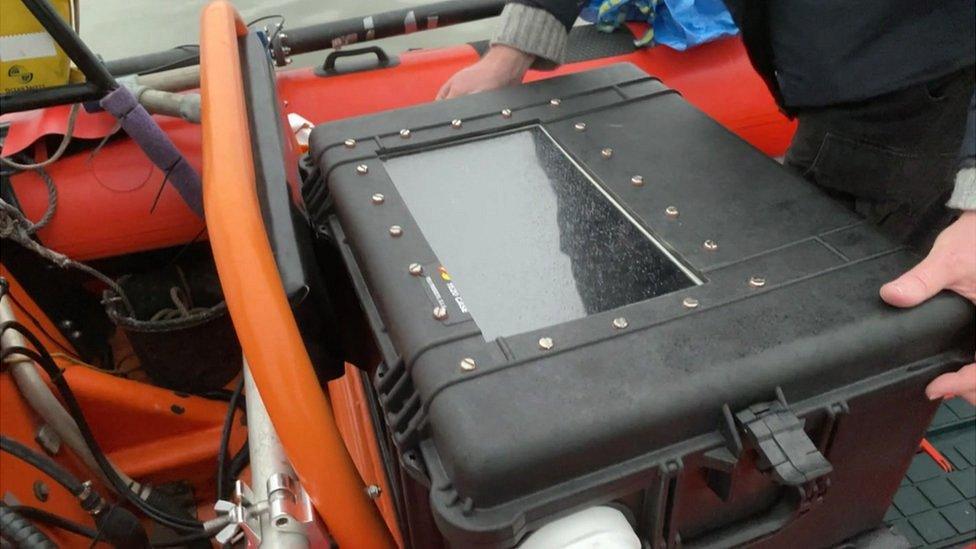
The team from the University of Hull used sonar to search the seabed
Scientists say they are confident of locating a medieval town swallowed up by the sea 600 years ago.
Ravenser Odd, on the East Yorkshire coast, was one of many settlements lost to coastal erosion.
An underwater sonar search by the University of Hull has uncovered sand dunes on the seabed which suggest stone structures underneath.
Prof Dan Parsons who leads the research team said: "We'll definitely find something eventually".
He said the sonar findings were similar to other sites around the world where ancient buildings have been uncovered.
"The surveys that we've undertaken revealed all the sand waves, big sand dunes a good couple of metres high," he said.
"This settlement will have hundreds of years' worth of sand dunes and mud on, all draping over on those foundations we are looking for."
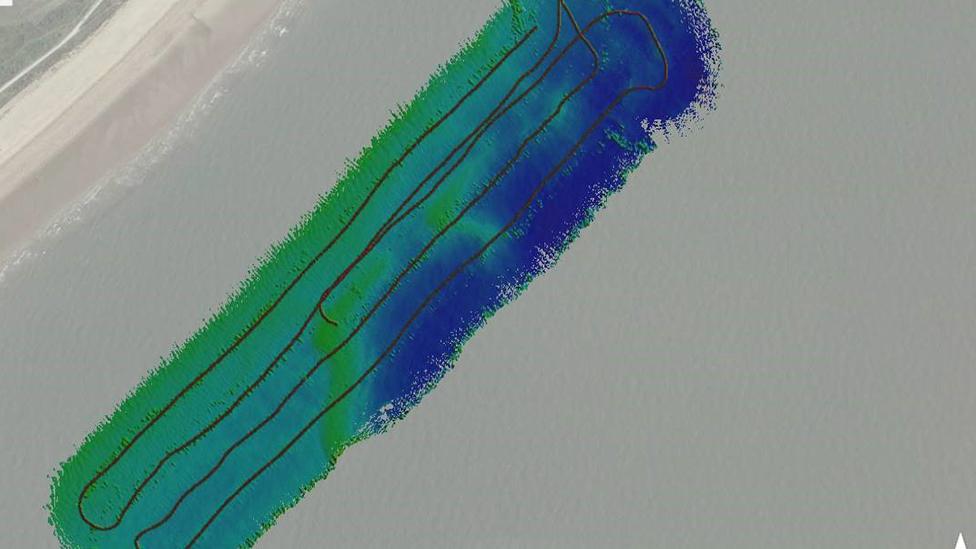
Sonar scans show large sand banks on the sea bed
Author Phil Mathison said the town was once "one of the most powerful ports in Britain" and was given a Royal Charter in 1299.
Its name was an Anglicised version of its Viking name, "the raven's tongue" describing the shape of nearby Spurn Point.
"It had two MPs, it had warehouses, it had a big fishing fleet. Its power rivalled at least Grimsby and Hull," he said.
Despite its prosperity and importance Mr Mathison said the town fell victim to increasing coastal erosion during the 14th Century.
"The last remains of the town were washed away in a storm in January 1362 called The Second Great Drowning," he said.
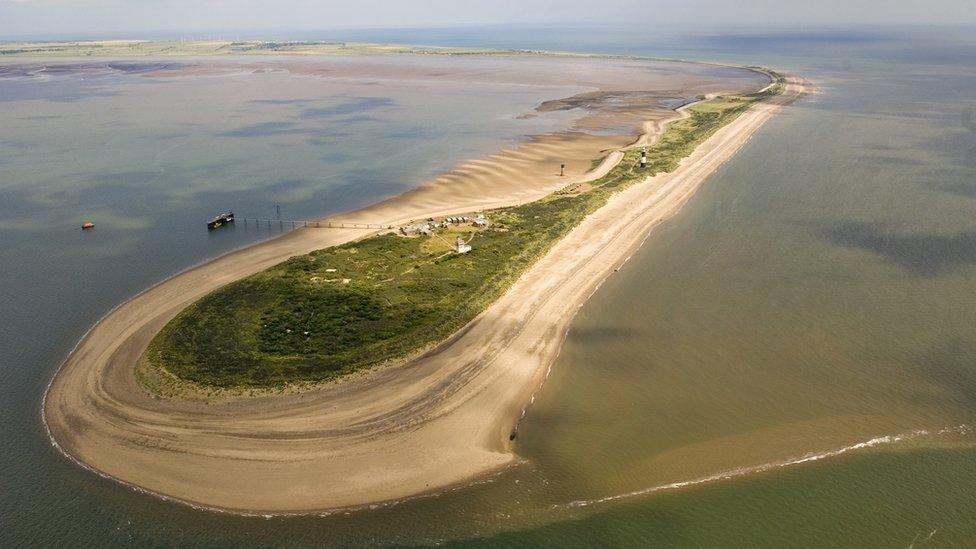
Ravenser Odd was an Anglicised version of its Viking name, "the raven's tongue" describing the shape of nearby Spurn Point
Prof Parsons said the team will recommence surveys when the weather improves.
"We're very confident there's something there it's just a matter of getting the sonar equipment at the right place at the right time," he said.
He said uncovering the site would not only be of archaeological interest but could help in understanding the effects of coastal erosion.
"As we're moving into uncertain times with climate change and significant coastal change predicted over the next 100 years learning from these past stories would be incredibly important," he said.
"It is really important to the coastal communities and how we adapt and mitigate the impacts of climate change."

Follow BBC Yorkshire on Facebook, external, Twitter, external and Instagram, external. Send your story ideas to yorkslincs.news@bbc.co.uk, external.
Related topics
- Published10 November 2021
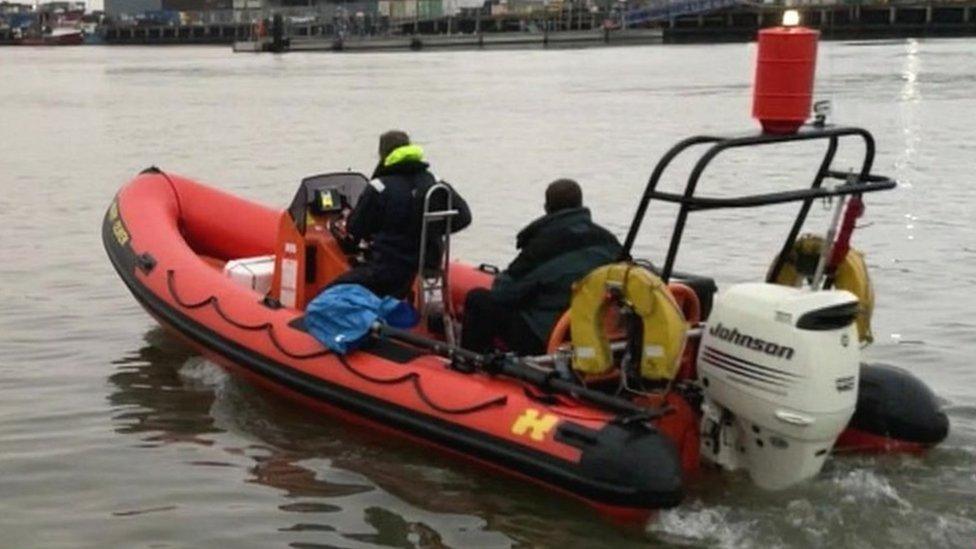
- Published26 December 2018

- Published20 March 2018
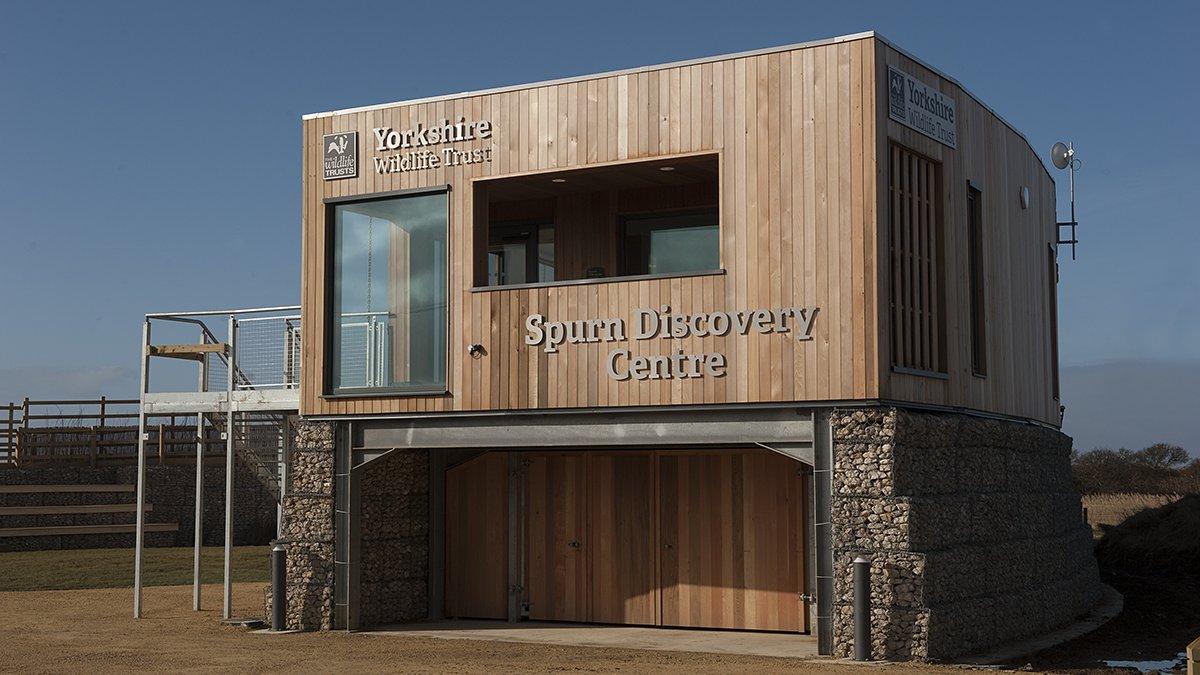
- Published11 January 2014
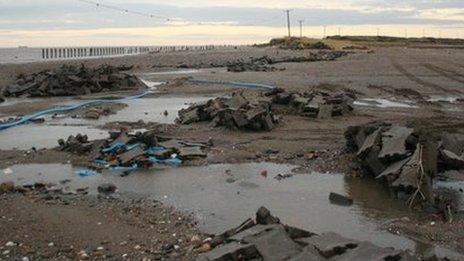
- Published11 April 2013